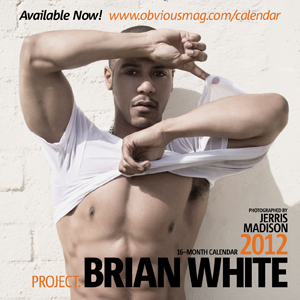Your Reality in…CHECK!
May 2009Somewhere in the United States, a woman is assaulted every nine seconds. It is estimated that (at least) one in three women will be beaten, coerced or abused at some point during her lifetime. Abuse doesn’t have to happen all the time. It can happen occasionally or even only once. Educating yourself about Domestic Violence (also known as Intimate Partner Violence, or IPV) will empower you with the tools you need to protect and empower yourself and those you care about.
First and foremost, be aware that Domestic Violence is an equal opportunity abuser. Young or old. Rich or poor. Anyone can be abused. Secondly, know that Domestic Violence comes in a various forms. Knowing what they are can help you spot someone in trouble. Common forms of abuse include:
Physical Abuse
Being pushed, shoved, slapped, pinned down, kicked, and/or having objects used as weapons against you are all forms of physical abuse.
Social Abuse
Forced isolation from friends and family or being unable to participate in certain activities are all examples of social abuse. A person may give in to this form of abuse in order to avoid an argument or because they fear that fighting it may lead to other forms of abuse.
Financial Abuse
This may include not being provided enough money, being forced to give your money to your partner, or only being allowed to make purchases approved by your partner.
Sexual Abuse
Being forced, pressured or threatened to engage in any form of sexual activity against your will.
Spiritual Abuse
Having your spiritual beliefs used to manipulate your thoughts, feelings and/or behaviors, being prevented from practicing your religious or spiritual beliefs, or being ridiculed for your religious or spiritual beliefs.
Psychological and/or Emotional Abuse
This form of abuse includes being put down, purposely neglected as a form of punishment, and emotional blackmail.
Perhaps the most common, and often times overlooked form of Domestic Violence is Verbal Abuse. This form of abuse can include your being called names, threatened (either directly or indirectly), criticized, blamed for the victimizer’s abusive behavior, or being the target of their violent or abusive anger.
What often makes verbal abuse such an insidious form of Domestic Violence is many abusers do not recognize that they have a problem. After the abuse, they are likely to act as if nothing happened, and may even seem to be in a better mood after the abuse has occurred. This often occurs for a variety of reasons. Perhaps they feel as if they have “won” and gotten you to back down, feel badly about yourself, or forced you to give in to what it is that they are wanting.
Even worse, verbal abusers often attempt to project a “perfect image” to the world, opting to exhibit most of their abusive behavior behind closed doors. This may make the victim feel isolated and alone, feeling that no one will believe them or making them second guess whether or not they may be overreacting about what is happening to them.
Making the decision to free yourself from an abusive relationship is just as difficult, if not more difficult, than healing from it. In many ways, the scars that are left by these relationships cut far deeper than the visible wounds that may be left behind, but going on to live a happy, healthy, loving life is possible. With the right amount of help, support, and time, it is even possible to love and trust yourself and a new partner in a new relationship.
If you believe that you, or someone you know may be in trouble, don’t ignore it. If there is someone that you’re concerned about, let them know that you care and that you are concerned (and if applicable, their children’s) well-being. Resources for assistance include: the National Domestic Violence Hotline: (800) 799-SAFE (7233) and the National Center for Victims of Crime (800) 394-2255.
Until next time…
By Spirit Love, Sex and Relationship Expert
www.talk2spirit.com
— By ObviousMag
Category: Advice
Tags: Advice




























 Digg This
Digg This Bookmark
Bookmark Stumble
Stumble
0 Comments
You can be the first one to leave a comment.